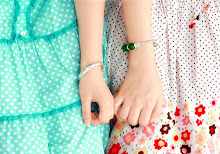
Living the single life.单身生活
Single life
The single life is on the up. According to the most recent census there are 14.2 million singletons (age 16-64) living in the UK today. When asked 'what would make their lives better?', a third of single people said, 'a large sum of money', not a life partner. They see single life as providing more time for hobbies, more time to spend on themselves, opportunities for being spontaneous and being able to have more close friends. Why would they want to compromise all this!
Single segmentation
Marketing experts have divided singletons into four main groups. Social butterflies make up 30% of adult singles. Their attitude is defined by this statement, 'I like to buy the newest fashion brands/styles available'. They enjoy downloading music, playing games in the pub and playing musical instruments.
Achiever beavers make up 16% of adult singles. Their defining attitude is 'I buy things I don't really need'. They enjoy dancing/clubbing, going to pop concerts and exercising at home.
Pippa Pans, a predominately female group (71%), make up 19% of adult singles. Their defining statement is 'the world would be a much better place if run by women'. They enjoy dancing/clubbing, going to festivals and practicing yoga.
Silvertons make up 35% of adult singles. Their defining statement is 'friends provide me with more support than my family'. They enjoy visiting galleries, dancing/clubbing and internet dating.
Real people
Nicola is an actress. She is single and has standards. 'We women are more choosy nowadays and I'm finding it difficult to meet somebody who meets my requirements.'
Philip is an information worker. He enjoys single life as it gives him 'time to himself and he can do what he likes'.
Single parents
Being single doesn't necessarily mean missing out on motherhood. The group, Single Mothers by Choice, explains that the rate of mothers not registering the father's name on the birth certificate has doubled in the last ten years. The Donor Conception Network says, 'Half our enquiries are from single, middle-class 33-40 year olds who are working and financially independent. They'd prefer to be in a relationship, but haven't found the right person and feel the clock is ticking.' Unfortunately it isn't so easy for single men to experience fatherhood!
Living the single life is one of the UK's biggest social trends, and one that looks set to continue for some time to come.
单身生活
单身一族正呈向上发展的趋势。据最近的统计, 16-64岁的英国人中,有1420万人处于单身状态。当被问及“什么可以让生活更美好?”,三分之一的单身一族回答“大笔的钱”而不是生活伴侣。他们认为单身生活可以给自己带来更多的时间,发展个人爱好,更善待自己,可以同时与不同的人交往,也可以结交关系更密切的朋友。有这些好处,何必要进入围城?
单身分类
市场专家们将单身一族分成四组。“社交蝴蝶型”占了成年单身人数的30%。他们的人生态度通过下面的陈述可以看出,“我喜欢买最新的时装和风尚”。他们还喜欢从网上下载音乐,在酒吧里玩游戏或弹奏乐器。“成就水獺型”占了成年单身人数的16%,他们的人生态度是“我会买我并不需要的东西”,他们热衷于跳舞和聚会,参加流行音乐会和在家锻炼。“天真无邪型” 大多数是女性(71%),并占成年单身人数的19%。他们信奉“如果世界由女人管理将会更美好”,他们也喜欢跳舞和聚会,乐于参加节日活动,练习瑜珈。 “游艺享受型”占成年单身人数的35%,他们的信条是:朋友比家庭带给我更多的支持。他们喜欢参观艺术馆,跳舞和聚会以及网上约会。
真实范例
Nicola是一个演员,她单身且有自己的标准。“我们当代的女人要求更高,我感觉很难找到一个符合我所有要求的人。” Philip在信息产业工作。他享受他的单身生活,因为单身带给他“充分的自由”,他可以“按自己喜欢的方式生活”。
单身爸妈
单身不一定要牺牲做母亲的权利。选择做单身母亲组织(Single Mothers by Choice)解释说未来十年,以母亲而不是父亲名字出生登记的婴儿将翻一番。试管婴儿网也表示,近一半的咨询来自33-40岁的中产阶级,有工作且经济独立的单身一族。他们希望有爱情,但还没有找到合适的人,但时间不待人。可惜的是,对于单身男性来讲,感受为人之父并不很容易。
单身过日子已经成为英国的社会潮流之一,而且势必在未来的一段时间仍将继续流行下去。


0 评论:
Post a Comment